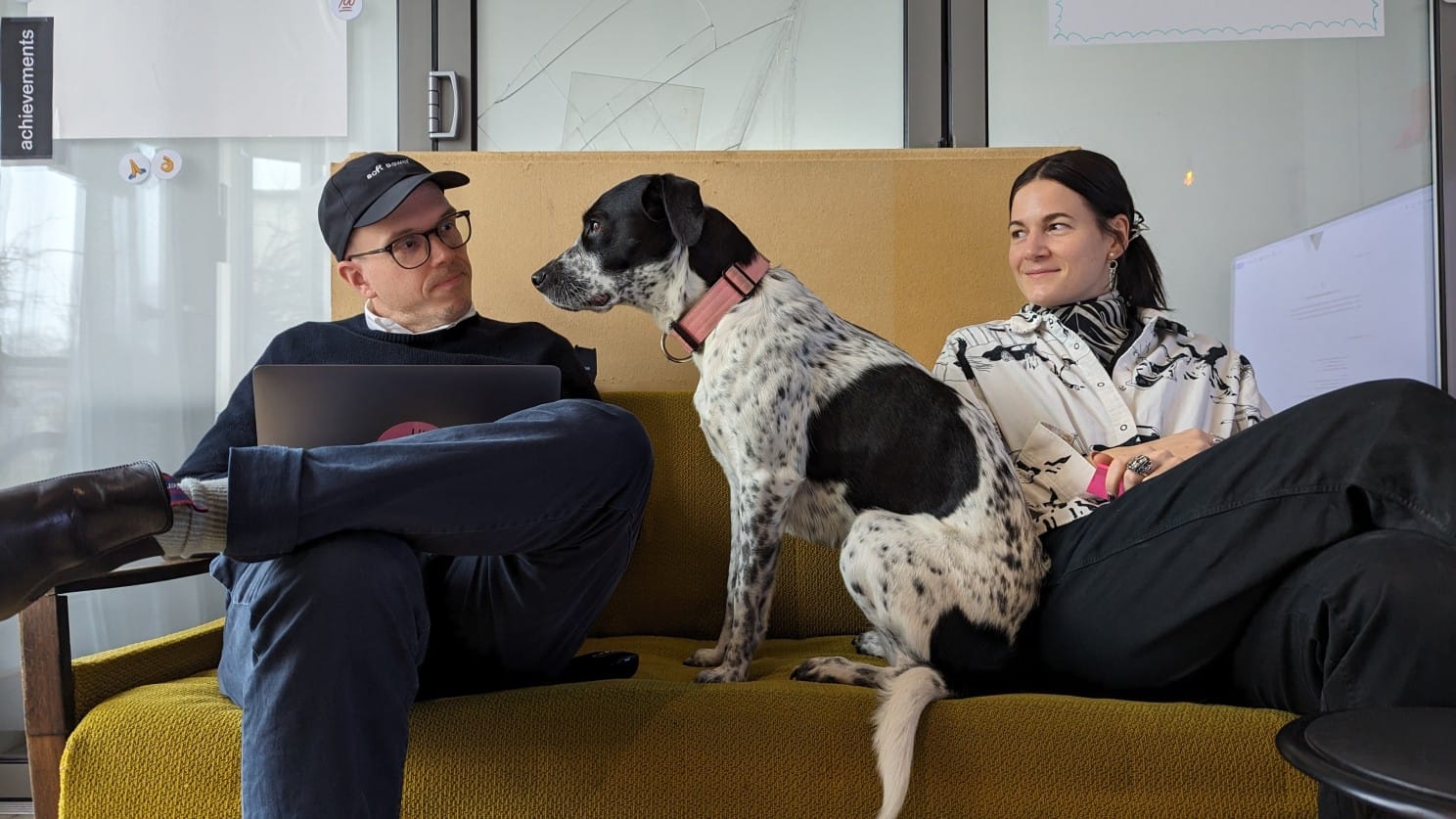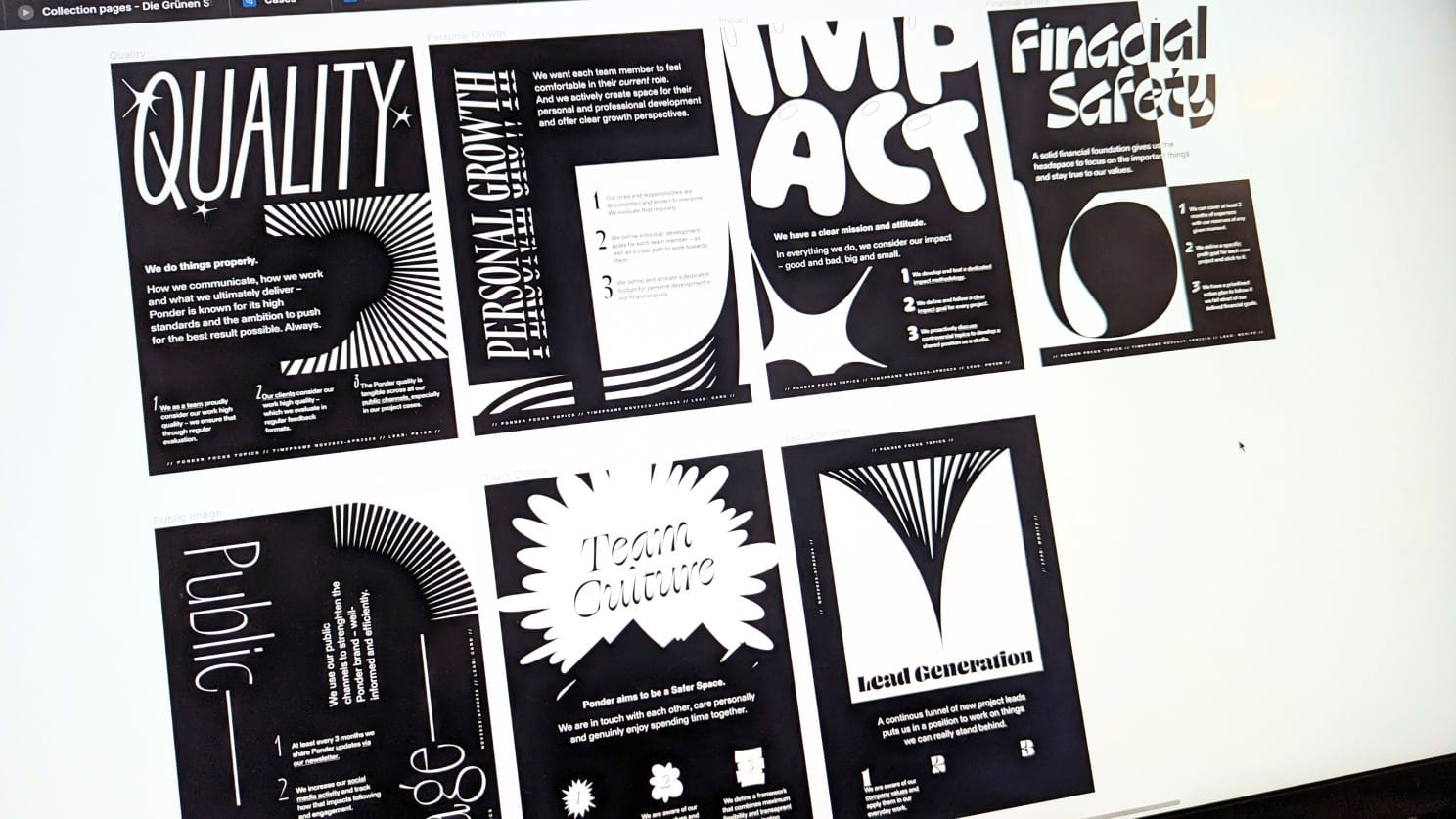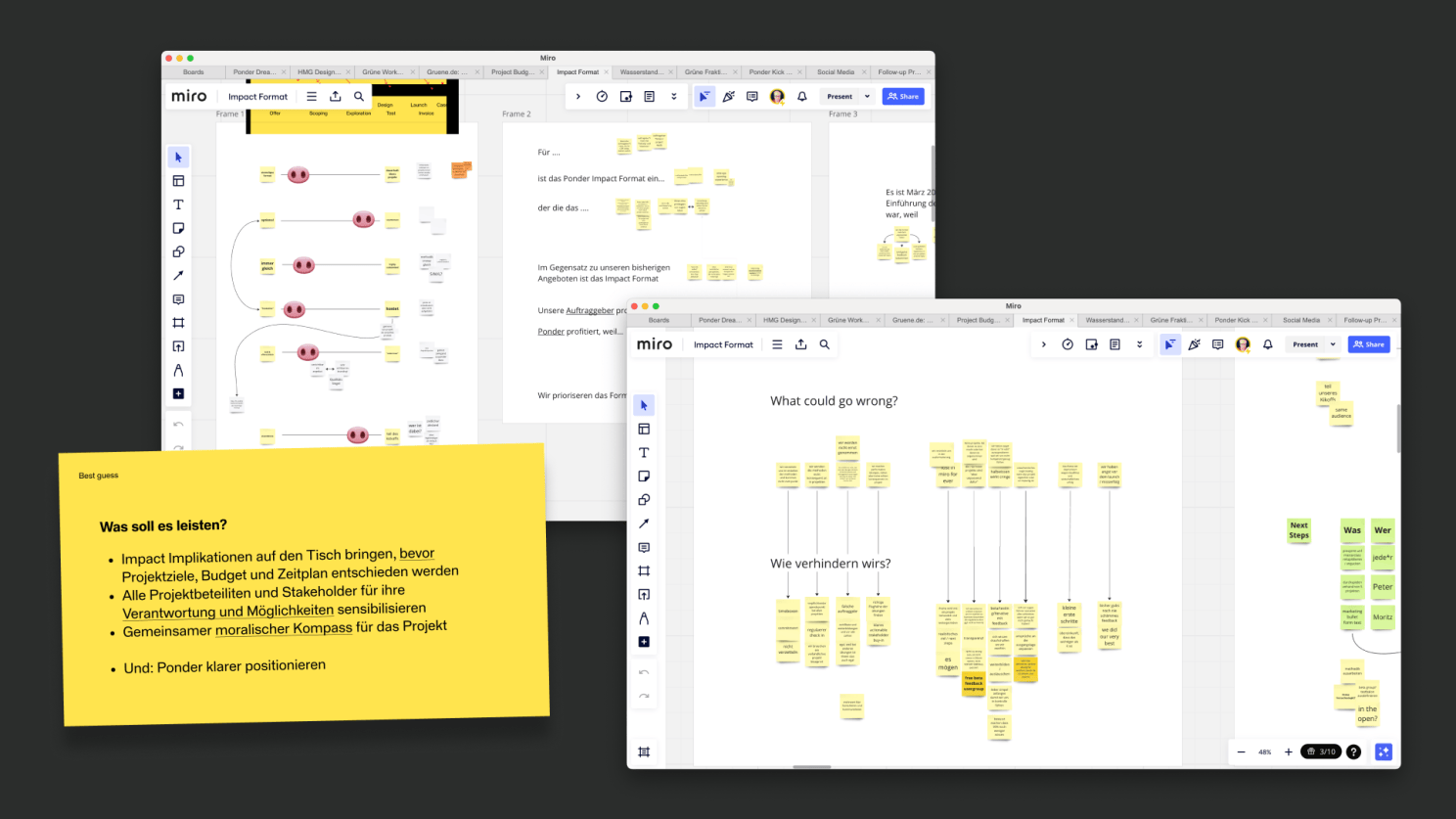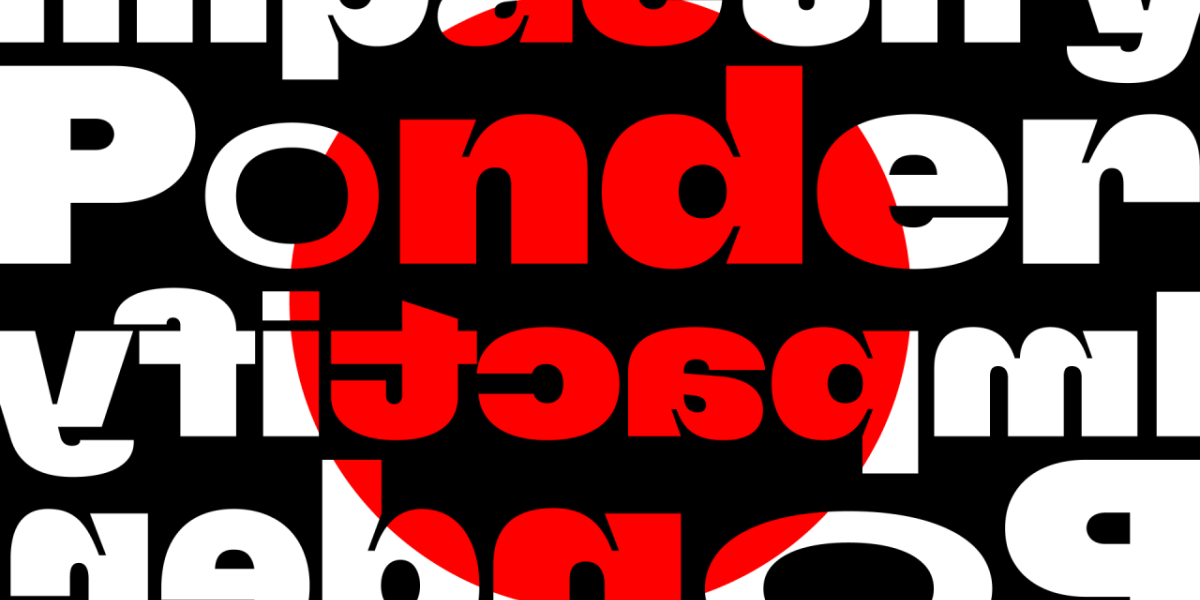Why we try to formalise impact — and how
Can you formalise “doing good”? We’re positive, as we are currently on a mission to bake positive impact even deeper into our methods and processes.
Having a positive impact on our society and environment is not only important to us — it’s the main reason why Ponder exists.
Since day one, this notion has ~impacted~ quite some areas of our operations: From big and obvious things (like choosing who we do and don’t work with) to medium things (like selecting the ethical choice in tools and services or paying fair salaries) to smaller things (like where our coffee comes from) — doing things “the right way” and considering all ethical aspects of design is deeply ingrained in the Ponder DNA.

However, when we reflected on our first years as a company, we realised that one area was surprisingly quite un-impacted: Our processes and methodologies in our client projects. Don’t get me wrong: It’s not like we didn’t care or act accordingly. The topic just never found its way into actual formalised methods and formats — probably because we mostly relied on tools, methods and formats we internalised long before Ponder existed. And they did work. They led to successful projects, they are one of our biggest assets — they just didn’t have ‘impact’ baked into them.
And that is what we want to change. Why? Because we know from experience that it is much harder to accidentally (and “accidentally”) forget about or intentionally deprioritise things once they become a formal part of our process. Once something is a mandatory step on a checklist, a dedicated exercise in a workshop, or defined success criteria, it’s much easier to stick to it and hold yourself and others accountable. This goes for our team, our clients, and our partners alike.
Getting started
So, how do we tackle this? We decided on a 2-step process:
- Introduce a new, dedicated ‘impact format’
- adjust our established methods where necessary
Currently, we are entirely focussing on Step 1. Why is that? First of all, because it’s faster. Going through our mixed bag of existing, partly interdependent formats, which we frequently re-assemble based on project requirements, will take a while. And second, we saw the biggest potential at the very beginning of our projects. That is where the crucial decisions are made, where projects are still the most malleable. That is where discussions about objectives and risks come naturally, and critical stakeholders are still in the room. That is where we see the highest potential to establish a shared understanding of impact with everyone involved.
So, what’s currently cooking behind the Ponder scenes is a dedicated format to set the moral guardrails and look at each project from a perspective of potential negative and positive impact – even before (or above) the typical start-of-project discussions of scope, budget and timelines.
Making it happen
Working on a topic like this one takes time – Here's how we approached it in order to make sure we stay focused during busy times:
- Prioritise the initiative: “Maximise Impact” is one of our seven current focus topics. We usually set these topics for two quarters; they serve as high-level priorities for our company and contain concrete goals we work towards — one of them being this dedicated impact format.

- Align on the basics: In an initial internal kickoff session, we aligned on the basics and developed a shared understanding: What are we trying to achieve? Who is this for? Is it mandatory? Who is paying for it? Is it a single exercise or a full-day workshop? Who’s in the lead?

In light of #newponder (read our newsletter issue on overthinking if you haven’t yet), we are now putting together a first iteration fast. We plan to validate it with selected peers and clients over the next weeks. So, if you want to see us stumble and improvise (and learn some ethical design principles on the side), let us know – we’d be happy to have some of you join the test runs! :)
All of this might sound familiar to you. Sure enough, we are not the first to develop this type of approach. Plenty of organisations use similar tools. The most prominent example is the ‘PreSprint’, a format established by Ethical Design Network founder Trine Falbe, whose ‘Mastering Ethical Principles for Businesses in Transformation’ masterclass we joined a few months ago. We’re also profoundly influenced by the work happening in SUX - The Sustainable UX Network and the folks working on the Web Sustainability Guidelines. As with many topics, plenty of knowledge exists – it’s just about making it work in your own environment.
We’re excited to share more about this new Ponder baby soon! Please reach out if you have any input, questions, or thoughts!

Join the conversation
Twitter Mastodon